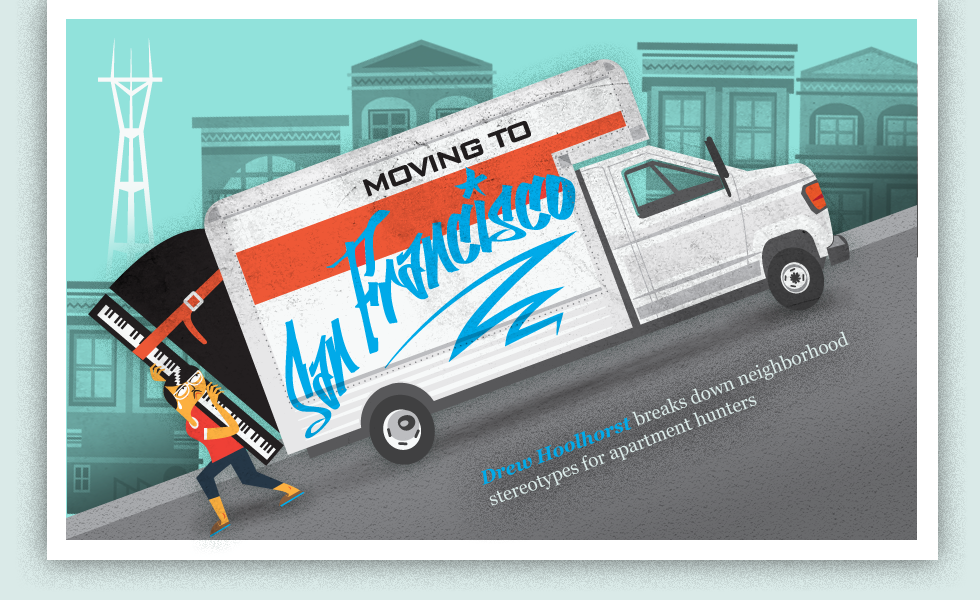
The past few months have put freelancers—including me—in a frenetic tizzy over Assembly Bill 5, California’s landmark, controversial gig economy law that went into effect on January 1.
Aimed largely at ride-share giants and food delivery apps, AB5 is intended to make it harder to classify workers as independent contractors and therefore improve conditions for gig economy workers. That sounds good in theory, but how that will actually play out is questionable.
The legislation has created a firestorm—Uber and Postmates are refusing to comply and suing, calling it unconstitutional. But the impact of the bill reaches far beyond tech companies. And one of its biggest victims is undoubtedly the state’s already suffering journalism industry.
Freelance writers, editors, and photographers—who make up a large and ever-growing share of all journalists in the state—are left clamoring to save their client and editorial contact lists, if they haven’t already jumped ship.
The bill explicitly addresses freelance journalists: Under the law, if a contractor creates more than 35 pieces of content for a single publisher, he or she must legally be described as an employee. Two freelancer organizations sought a temporary order to except journalists from the law, but a federal judge denied the request.
Already, Vox Media — behind Eater, Curbed, SB Nation, the Verge, and five other online publications — announced it will cease working with freelance writers in California.
The reasoning behind the 35 figure? It’s pretty much random — a compromise between interest groups, including journalists, and California Assemblywoman Lorena Gonzalez, who wrote the bill.
“The 35 submission cap might work for a writer at a traditional outlet or magazine who is writing a 5,000-word piece for a dollar a word, but the vast majority of writers have gigs that are far more versatile,” fellow freelance writer Alisha Grauso, a resident of Santa Monica, told me. “I know many people who would hit that cap for an outlet in a single week, let alone in a year.”
I regularly contribute to eight or so publications; I’ll easily hit that limit with at least two. That means those outlets are left with two options: bring me on as a W-2 staffer, severely cut my output (and, therefore, pay), or outsource my work to, say, a Coloradan who can churn out pieces without limit or worry of getting that publication into a legal entanglement.
This law will not only have negative consequences for freelance journalists themselves, but for the state’s publications — and the public.
Already, Vox Media — the company behind Eater, Curbed, SB Nation, the Verge, and five other online publications — announced it will cease working with freelance writers in California, affecting an estimated 200 scribes. According to Randy Dotinga, board member at the American Society of Journalists and Authors, other publications that will limit or stop working with contractors include SF Weekly, SF Examiner, Forbes, the Los Angeles Times, and Business Insider.
I’ve already felt the impact, personally. Many of the to-hire platforms I’ve previously amassed gigs at have cut ties with me after completely axing the idea of working with California writers, such as both Rev and Scripted. Others are still mulling the decision, like Xist Publishing, which is based in California and has suspended all new contracts.
The blow to freelancers comes at a time when publications are more reliant on them than ever as staff numbers have dwindled. This law will not only have negative consequences for freelance journalists themselves, but for publications—and the public. While California is still one of the nation’s most prosperous states for media professionals, second only to New York, journalism here is suffering like everywhere else. A most recent example: the shutting down of Martinez News-Gazette — the state’s oldest publication at 161 years old, which Mark Twain himself used to contribute to.
Sure, in an ideal world, this law would magically make publications able to turn the state’s freelancers into employees—but that is simply not the reality in the journalism industry today. Far from it.
And while some of us are freelancers because employee jobs are few and far between, others—many, actually—choose this lifestyle. The freedom and flexibility appeals to a lot of people in this state, and the fact that the government is trying to tell us how we can conduct our work is deeply troubling. Given the Wild West nature of the journalism industry today, my only shot at a career in the field after graduating college was to freelance — hundreds upon hundreds of articles — all while bartending, waiting tables, dog-sitting Pomeranians, or delivering pizzas to inebriated college twentysomethings.
Freelancing is a way to get a foot into the door of competitive industries like filmmaking, journalism, and photography. It also allows people with other responsibilities who can’t work full-time—stay-at-home parents, caretakers, students, and others—to work.
Hopefully, lawmakers will recognize these unintended consequences and amend the law. Journalists, and members of the public who want to support them, should speak out for the need to make changes. Journalism has suffered enough of a hit in recent years—it doesn’t need this final blow.




